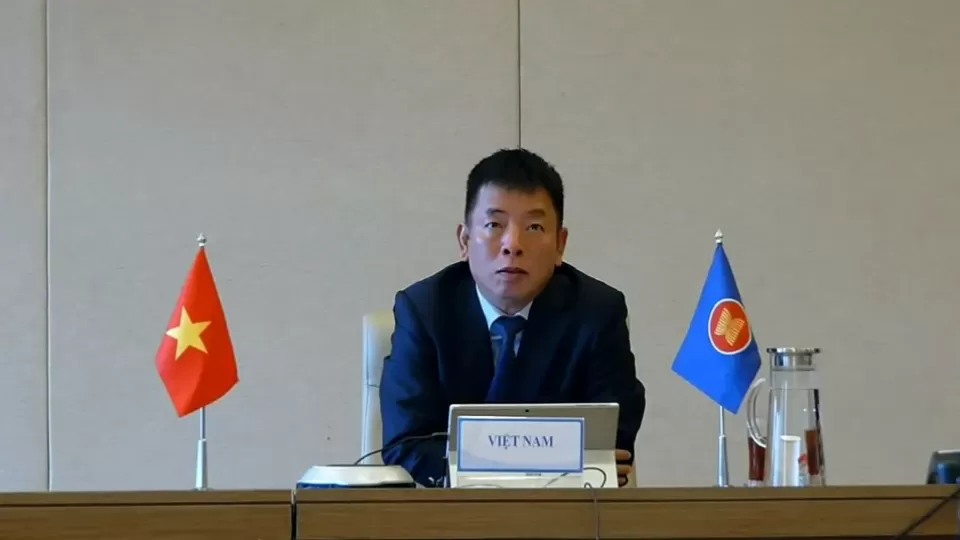June 16, 2023
HANOI — Ambassador Vũ Hồ, acting head of SOM ASEAN Vietnam, voiced concerns about the ongoing complicated developments in cyber security, climate change, and South China Sea (known in East Sea) issues at the ASEAN Regional Forum (ARF) Senior Officials’ Meeting (SOM) held on June 14 in Jakarta.
Speaking at the meeting, the diplomat stressed principled stance of ASEAN and suggested partners, when operating in the waters, should respect international law, particularly the 1982 UN Convention on the Law of the Sea (UNCLOS 1982), jointly building the East Sea into a sea of peace, stability, cooperation and development.
The ARF SOM reviewed situations and orientations of ARF cooperation, discussed international and regional issues of mutual concern, and prepared for the ARF-30 Ministerial Meeting to be held next month.
Participants acknowledged progress in ARF cooperation over the past time, especially efforts in implementing the Hà Nội Action Plan II (2020-2025). They also agreed on measures to accelerate the implementation of the remaining activities in the Hà Nội Action Plan II and proposed plans for the mid-term 2023-2024.
Marking its 30th anniversary, they reaffirmed the ARF is the leading forum in the region to promote dialogue and cooperation on political-security issues while promoting trust-building and preventive diplomacy.
Discussing international and regional issues, they expressed concerns about impacts of hotspots such as the Russia-Ukrainian conflict, the Korean Peninsula, and Myanmar, peace, stability and development in the region.
They called on relevant parties to exercise restraint, ease tensions, strengthen dialogue, build trust, and resolve issues through peaceful means on the basis of international law.
Regarding the East Sea issue, participants expressed concern about complicated developments in this strategic sea, supported ASEAN’s common principled stance on the East Sea, and upheld compliance with international law, especially UNCLOS 1982.
They also agreed to strengthen efforts to develop an effective and substantive Code of Conduct (COC) in the East Sea in accordance with international law and the UNCLOS 1982.


